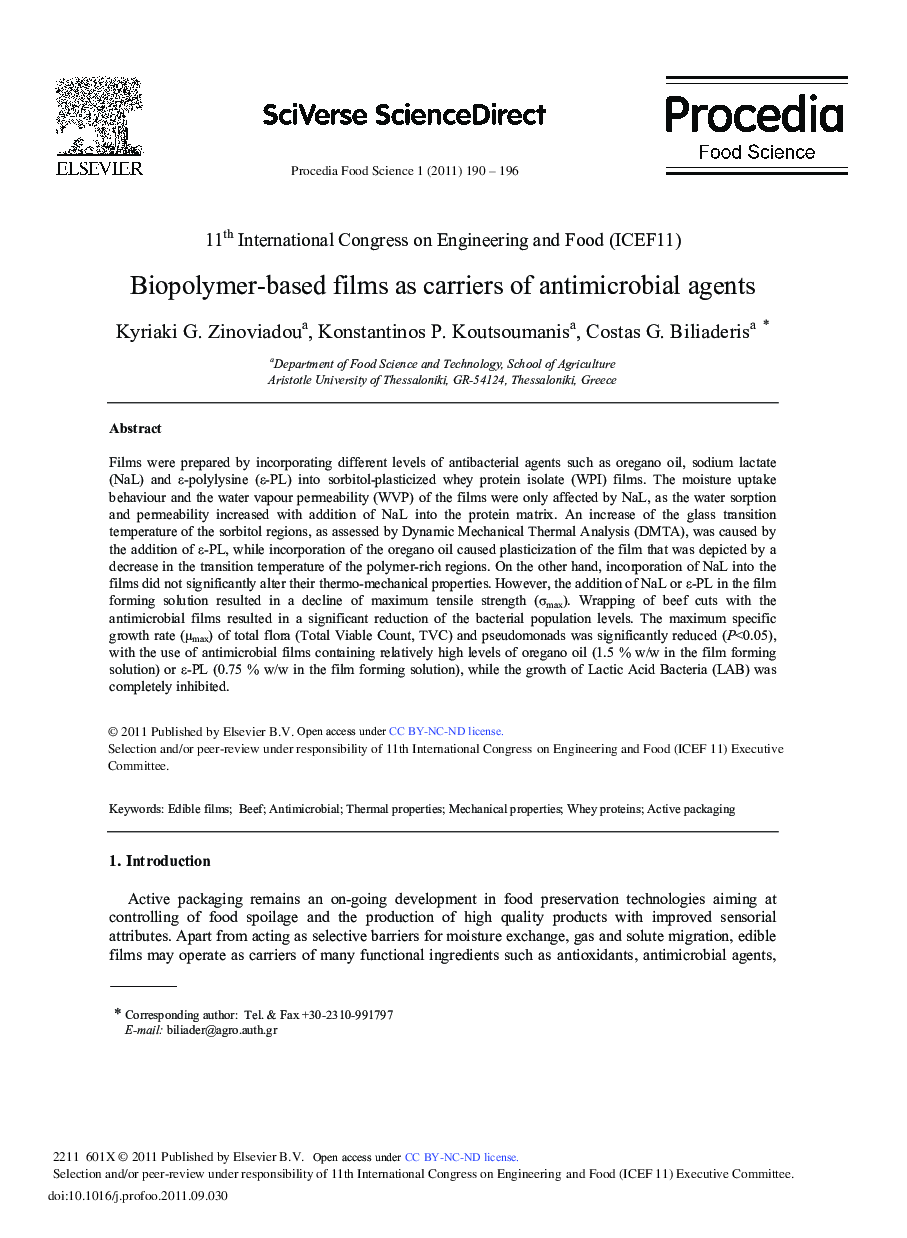| کد مقاله | کد نشریه | سال انتشار | مقاله انگلیسی | نسخه تمام متن |
|---|---|---|---|---|
| 1264938 | 1496855 | 2011 | 7 صفحه PDF | دانلود رایگان |
Films were prepared by incorporating different levels of antibacterial agents such as oregano oil, sodium lactate (NaL) and ɛ-polylysine (ɛ-PL) into sorbitol-plasticized whey protein isolate (WPI) films. The moisture uptake behaviour and the water vapour permeability (WVP) of the films were only affected by NaL, as the water sorption and permeability increased with addition of NaL into the protein matrix. An increase of the glass transition temperature of the sorbitol regions, as assessed by Dynamic Mechanical Thermal Analysis (DMTA), was caused by the addition of ɛ-PL, while incorporation of the oregano oil caused plasticization of the film that was depicted by a decrease in the transition temperature of the polymer-rich regions. On the other hand, incorporation of NaL into the films did not significantly alter their thermo-mechanical properties. However, the addition of NaL or ɛ-PL in the film forming solution resulted in a decline of maximum tensile strength (σmax). Wrapping of beef cuts with the antimicrobial films resulted in a significant reduction of the bacterial population levels. The maximum specific growth rate (μmax) of total flora (Total Viable Count, TVC) and pseudomonads was significantly reduced (P<0.05), with the use of antimicrobial films containing relatively high levels of oregano oil (1.5% w/w in the film forming solution) or ɛ-PL (0.75% w/w in the film forming solution), while the growth of Lactic Acid Bacteria (LAB) was completely inhibited.
Journal: Procedia Food Science - Volume 1, 2011, Pages 190-196
